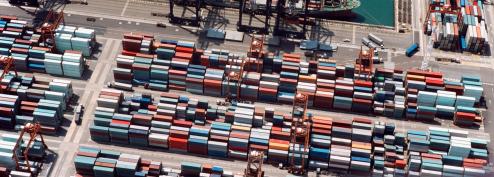Industrial Ecology in Developing Countries
The Yale Program on Industrial Ecology in Developing Countries was launched in 2007, with the following mission: To work with international colleagues to adapt industrial ecology theory and practice to the realities faced in industrializing countries related to co-mingled problems of energy access, water quality and quantity, waste and material management, and global warming and to gather and disseminate useful knowledge, including indigenous knowledge, which contributes to deeper insights for industrial sustainability.
The Yale Program on Industrial Ecology in Developing Countries works with international colleagues to adapt industrial ecology theory and practice to the realities faced in rapidly industrializing developing countries related to the co-mingled problems of energy access, water quality and quantity, waste and material management, and global warming. The mission of the program is to gather and disseminate useful knowledge, including indigenous knowledge, which contributes to deeper insights from industrial ecology. The program is led by Associate Professor Marian Chertow, and directed by Dr. Weslynne Ashton. Doctoral student Matthew Eckelman coordinates research efforts across South Asia and Dr. Megha Shenoy has joined the team as a post-doctoral scientist focusing on projects india.
India was chosen, along with China, as one of two core geographical focal areas for this program because it is a diverse country that is rapidly industrializing and facing environmental challenges associated with this growth. Our primary research partner in India is the Resource Optimization Initiative (ROI www.roi-online.org) based in Bangalore and founded by the late Mr. Ramesh Ramaswamy, a well-respected pioneer in bringing industrial ecology to India.
The Program’s main activities are focused in India and China:
In India, our researchers have worked with the Resource Optimization Initiative in Bangalore to examine the life-cycle impacts of bio-fuel cultivation and production in Karnataka, resource use efficiency in the leather manufacturing cluster in Tamil Nadu and in the Nanjangud industrial area outside Mysore.
Our research projects in China have focused on understanding material flows and industrial symbiosis (inter-firm resource management synergies) in the Tianjin Economic Development Area and utilizing this information in planning the Tianjin Binhai New Area with our partners at Nankai University and the TEDA Environmental Protection Board.
More recently, we have initiated research in South East Asia and East Africa, and are exploring collaborative research with partners in Latin America and the Caribbean.
Our core strength lies in the ability to do comparative research and share information gained across different regions of the world that lead to insightful environmental management, economic development and policy recommendations. Thus, we are positioned to undertake research projects related to promoting more sustainable industrial development through more efficient patterns of energy, water and material production and consumption as well as greater recycling and reuse of waste materials.
Listen to Marian Chertow’s podcast: “Industrial Ecology: “Why Waste Waste?” Yale School of Forestry and Environmental Studies Podcast
